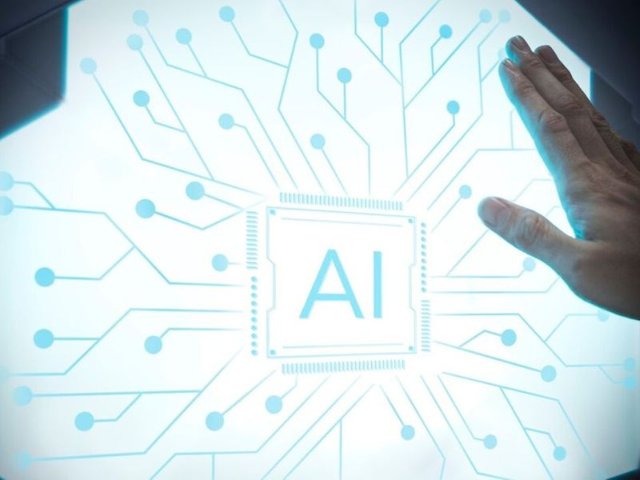
ChatGPT has emerged as one of the most transformative AI technologies in recent years, driving innovation and efficiency across industries. With its ability to understand and generate human-like language, ChatGPT offers immense potential for businesses, developers, and organizations. As we move into 2024, the integration of ChatGPT is reshaping processes and redefining customer experiences. Let’s explore the top use cases for ChatGPT integration in 2024 and how they’re revolutionizing various sectors.
1. Advanced Customer Support
One of the most widespread applications of ChatGPT is in customer service. By integrating ChatGPT, businesses can offer faster, more accurate, and scalable customer support.
Key Features:
24/7 Availability: Provide uninterrupted customer assistance regardless of time zones.
Instant Responses: Handle common queries and troubleshooting in real time.
Personalized Support: Analyze user data to offer tailored recommendations.
Real-World Applications:
Automated response systems for FAQs.
Escalation management, where ChatGPT gathers preliminary details before involving human agents.
Multilingual support to cater to a global audience.
2. Content Creation and Management
ChatGPT’s ability to generate human-like text has made it an indispensable tool for content creators and marketers.
Use Cases:
Blog Writing: Generate drafts, outlines, or complete articles based on topics and keywords.
Social Media Management: Craft engaging captions, posts, and responses.
Email Campaigns: Create compelling email copy tailored to specific audience segments.
By integrating ChatGPT into content workflows, businesses can save time, reduce costs, and maintain consistency in their messaging.
3. Virtual Assistants for Productivity
ChatGPT-powered virtual assistants are transforming the way individuals and teams manage their tasks and schedules.
Functionalities:
Task Automation: Manage to-do lists, set reminders, and schedule meetings.
Knowledge Retrieval: Summarize documents, find specific information, or answer complex questions.
Collaboration Tools: Assist in drafting documents, brainstorming ideas, or formatting content.
This integration is especially valuable in corporate environments, boosting employee productivity and collaboration.
4. Personalized Learning and Education
Education is being revolutionized by AI, and ChatGPT is at the forefront of this transformation.
Educational Applications:
Virtual Tutors: Provide personalized assistance to students across various subjects.
Interactive Learning: Facilitate engaging Q&A sessions or simulate real-world scenarios for practice.
Content Generation: Create study guides, quizzes, and summaries for learners.
Institutions and EdTech platforms can use ChatGPT to enhance accessibility and offer tailored learning experiences.
5. Healthcare Support
In the healthcare industry, ChatGPT is proving to be a game-changer by improving accessibility and operational efficiency.
Key Use Cases:
Patient Support: Answer common health-related queries and provide information on medications or treatments.
Appointment Scheduling: Streamline booking processes and send reminders.
Clinical Documentation: Assist healthcare providers by generating and summarizing medical notes.
While ChatGPT cannot replace professional medical advice, it can significantly enhance patient engagement and administrative workflows.
6. E-commerce and Retail
For the e-commerce sector, ChatGPT is enabling personalized and efficient customer journeys.
Applications:
Product Recommendations: Analyze customer preferences to suggest relevant products.
Order Tracking: Provide real-time updates on shipping and delivery statuses.
Cart Recovery: Send automated reminders for abandoned carts.
By integrating ChatGPT, retailers can boost conversions and improve customer satisfaction.
7. Recruitment and HR Management
ChatGPT is streamlining HR processes, from hiring to employee engagement.
Use Cases:
Resume Screening: Automate the initial review of resumes and identify top candidates.
Interview Preparation: Generate potential interview questions or role-specific scenarios.
Employee Onboarding: Provide new hires with instant answers to FAQs and guide them through onboarding steps.
HR teams can leverage ChatGPT to save time and enhance the candidate and employee experience.
8. Financial Services and Banking
In the finance sector, ChatGPT is driving better customer experiences and operational efficiency.
Applications:
Fraud Detection Alerts: Notify users of suspicious activities in a conversational tone.
Financial Advice: Provide personalized recommendations on savings, investments, or budgeting.
Account Assistance: Handle routine inquiries like account balances, transaction histories, or password resets.
ChatGPT’s integration helps financial institutions build trust and improve accessibility.
9. Gaming and Entertainment
The gaming industry is using ChatGPT to create immersive and dynamic experiences.
Key Applications:
Non-Player Characters (NPCs): Design interactive, intelligent NPCs for a more engaging gameplay experience.
In-Game Assistance: Provide real-time tips, guides, or troubleshooting for players.
Content Generation: Assist in crafting storylines, dialogues, or world-building elements.
This integration adds depth and interactivity to gaming experiences.
10. Legal and Compliance Assistance
Legal professionals and compliance teams are leveraging ChatGPT for improved accuracy and efficiency.
Use Cases:
Document Drafting: Generate contracts, agreements, or legal memos.
Research Assistance: Summarize legal precedents or analyze case law.
Compliance Checks: Help businesses stay up to date with regulatory requirements.
ChatGPT enables faster and more cost-effective legal processes while maintaining high standards of accuracy.
11. Real-Time Language Translation
ChatGPT’s multilingual capabilities are bridging communication gaps across borders.
Benefits:
Real-Time Conversations: Enable seamless cross-language communication.
Localized Content: Generate culturally relevant content for diverse markets.
Global Customer Support: Assist international clients in their native languages.
This use case is particularly valuable for businesses operating in global markets.
12. Proactive Business Intelligence
ChatGPT is not just reactive; it can proactively assist businesses in decision-making.
Examples:
Analyze customer sentiment from feedback and reviews.
Identify emerging trends in industry data.
Generate forecasts and recommendations for strategic planning.
By integrating ChatGPT with business intelligence tools, organizations can gain actionable insights and stay ahead of the curve.
Conclusion
The use cases for ChatGPT integration in 2024 are vast and varied, spanning industries and functions. From enhancing customer interactions to driving operational efficiency, ChatGPT’s capabilities are transforming the way businesses and individuals operate. By embracing ChatGPT, organizations can unlock new opportunities, improve user experiences, and remain competitive in a rapidly evolving digital landscape.
As AI technology continues to evolve, the possibilities for ChatGPT integration will only expand, paving the way for smarter, more connected, and highly efficient ecosystems.